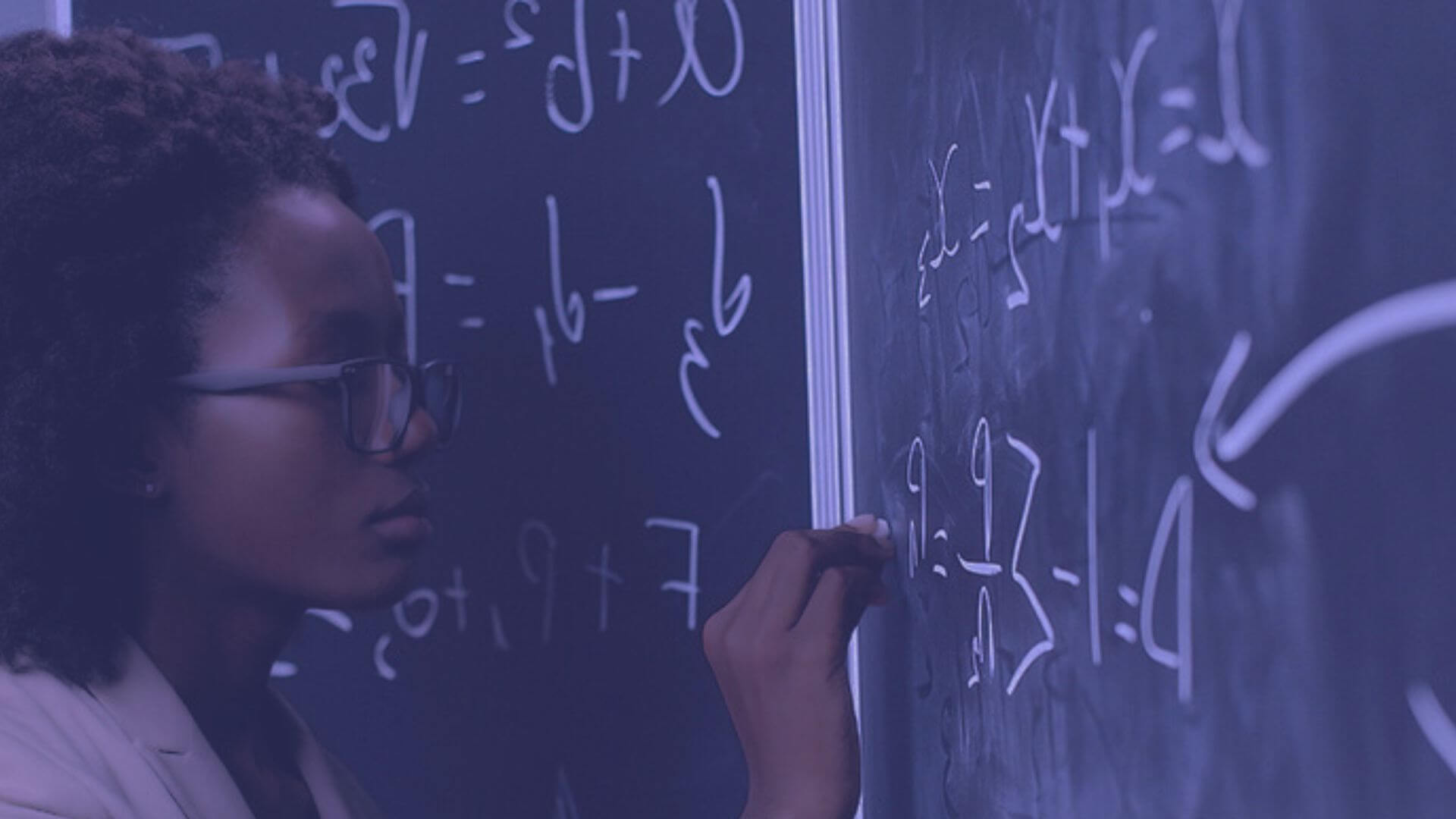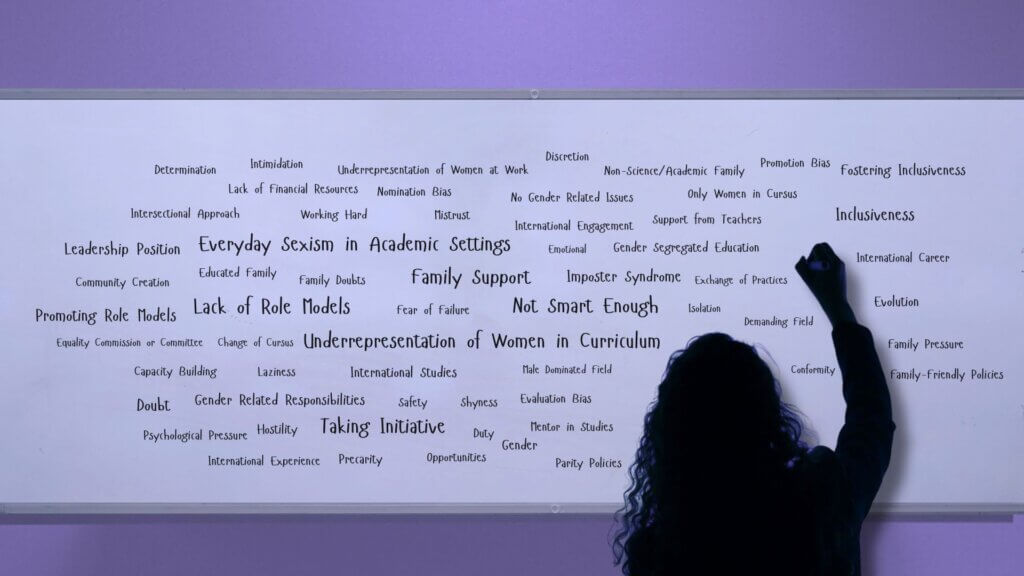
This article is part of the series “Women scientists around the world: strategies for gender equality” exploring the drivers and barriers to gender representation in scientific organizations. It draws on a qualitative pilot study I conducted in consultation with the Standing Committee for Gender Equality in Science (SCGES), based on interviews with women scientists from various disciplines and geographic regions. The series is published simultaneously on the websites of ISC and SCGES.
Marie Françoise Ouedraogo’s interest in mathematics was nurtured from a young age, with encouragement from her high school teachers and parents. However, her extended family, which played a key role in her upbringing, worried about her decision to pursue long studies. Like in many places around the world, societal expectations in Burkina Faso often push women toward shorter education, early marriage, and motherhood. But Marie Françoise was not deterred. “I loved mathematics and wanted to go as far as I could,” she recalled.
At university, she found herself among a small minority: only four women in a class of 100, and eventually, the only woman left at the master’s and doctoral levels. Although her professors supported her, her male peers frequently questioned her abilities, reflecting the pervasive gender bias in academia. “They did not accept that I was here, studying with them.” Despite these challenges, she persevered, determined to excel in her field and specialized in functional analysis.
Professor Ouedraogo began her academic career in 2001. She remembers the surprise of her students when she first walked into a classroom: “When I arrived, they thought I was one of their peers,” she says. “It was only when I picked up the chalk and started teaching that they realized I was the professor.” This initial reaction quickly gave way to respect as her students recognized her authority and expertise.
Her academic career progressed through a merit-based system under the African and Malagasy Council for Higher Education (CAMES), a supranational African organization that oversees the career advancement of university professors in African countries. Ouedraogo’s experience with CAMES was positive, as it follows clear guidelines for promotion based on performance, without bias toward gender. “If your file meets all the conditions, there is no problem, whether you’re a man or a woman,” she says, describing the fairness of the system that allowed her to rise through the ranks and ultimately become a full professor.
In 2009, Professor Ouedraogo attended the Pan African Congress of Mathematicians (PACOM) in Ivory Coast, where she was appointed chair of the African Mathematical Union (AMU) Commission for Women in Mathematics. Recognizing that the Commission had been largely inactive, she worked to revitalize it by organizing a workshop in Ouagadougou in 2012, bringing together African women mathematicians to discuss their roles in the field. “I realized that the commission was not really ‘alive.’ There had been only one workshop in decades. I decided to revive things by organizing a regional workshop that would bring together African women in mathematics.”
That event laid the foundation for a bigger initiative. Encouraged by advice she received from the European Women in Mathematics (EWM) association, Dr. Ouedraogo and her colleagues concluded that African women mathematicians needed their own space to organize and advocate. This led to the formation of the Association of Women in Mathematics in Africa (AWMA) in 2013, with Dr. Ouedraogo as its Chair.
AWMA provides a platform for African women mathematicians to collaborate, share experiences, and promote gender equity in mathematics across the continent. It quickly became a very active organization. “First, we started by organizing workshops in the five regions of Africa: East, West, North, South and Central. Each time, we managed to interest women mathematicians in the region and helped organize national associations of women in mathematics in several countries.”
AWMA also launched a website, with financial support from the Committee for Women in Mathematics (CWM) of the International Mathematical Union (IMU), to serve as a resource hub for women mathematicians across the continent. She explains that “at the time of COVID, in 2019, as we could no longer easily meet in person, we created a webinar that took place once a month. We asked a mathematician, man or woman, to give a one-hour lecture. People were able to follow via Zoom.”
AWMA has also organized workshops on Sage, a key mathematical software. “We have already done it in Senegal, Nigeria and Uganda. This year [2024], we are going to organize it in Burundi. Maybe the following year, it will be in South Africa.” These events have been well-received, with participants applying the software to both research and teaching. “The feedback has been great,” says Ouedraogo. “Participants regularly ask us to organize more activities in different countries, and we try to cover all the regions of Africa.”
While AWMA’s mission is to promote the role of women in mathematics, its activities are inclusive. “In workshops, most of the lecturers are women,” Ouedraogo explains. “But among the participants, we include both men and women. Especially if it’s aimed at students, doctoral students or master’s students, we make sure that there are men and women. It’s not only for women, but we try to involve as many women as possible.”
This strategy stems from a practical reality: there are relatively few women mathematicians in Africa, and many are isolated from decision-making positions. “When organizing activities, it’s challenging to secure funding without male participation,” Ouedraogo says. She recognizes that since women and men work together daily in labs and classrooms “If we exclude them, they might create obstacles. So, it’s better to involve them and collaborate.”
AWMA is also actively promoting role models and raising the visibility of African women mathematicians through various initiatives, including the publication of a brochure featuring portraits of women mathematicians from across the continent. “We didn’t realize we had so many role models in mathematics in Africa,” says Dr. Ouedraogo. “They existed, but they were invisible!” The brochure aims to inspire young girls to pursue mathematics by showcasing successful women. “When you have a role model, you see someone who has succeeded, and you think, ‘Why not me? I’ll try, and maybe I’ll succeed like her.”
When I was a student, the only woman we saw in science was Marie Curie. She was the most well-known, but she wasn’t even in mathematics—she was in physics and chemistry. That was the only role model we had. Unfortunately, she wasn’t from our country – we lived in a different culture.
The brochure also serves another important purpose: to remind women mathematicians, who often find themselves in the minority in male-dominated labs, that they are not alone. “They can read the stories and think, ‘I’ll draw inspiration from her to solve the challenges I face,” Ouedraogo adds.
In addition to its regional impact, AWMA is highly visible on the international stage. It maintains strong connections with the Committee for Women in Mathematics (CWM) and actively participates in the World Meeting for Women in Mathematics. This satellite event of the International Congress of Mathematicians, held every four years, provides a platform for sharing AWMA’s experiences and offering insights into the state of mathematics in Africa.
Marie Françoise Ouedraogo’s work has significantly impacted the mathematical community in Africa, particularly in creating opportunities for women. By founding AWMA, she has ensured that African women mathematicians have a platform to share knowledge, collaborate, and advocate for their inclusion in the field.
Her success story is not just about overcoming obstacles but also about creating space for others to succeed. Through her leadership, women mathematicians across Africa have gained access to resources, networks, and opportunities that were previously scarce, paving the way for the next generation of women in mathematics.
 blog
blog
 blog
blog
Disclaimer
The information, opinions and recommendations presented in our guest blogs are those of the individual contributors, and do not necessarily reflect the values and beliefs of the International Science Council